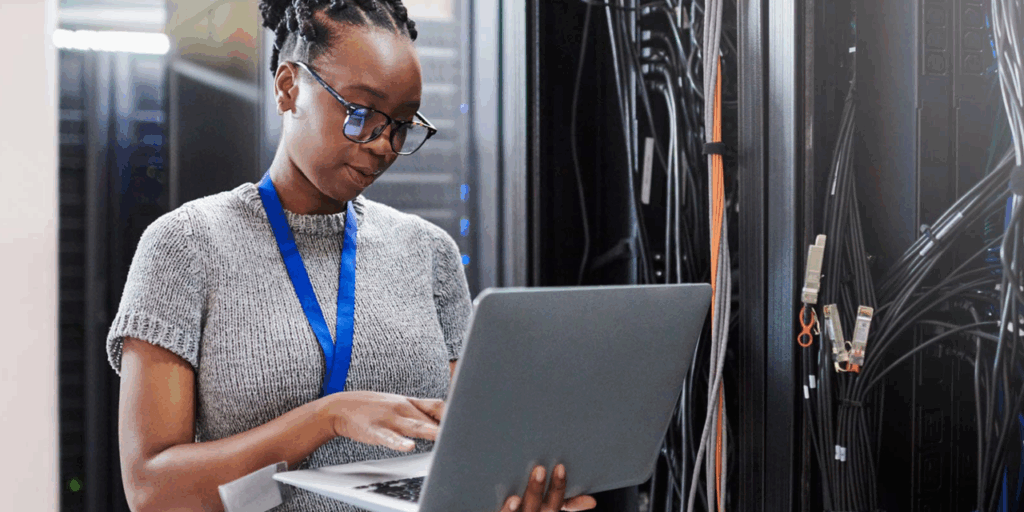
Awareness, Affordable Tools & Building Trust
Summary:
Small and medium-sized enterprises (SMEs) are the backbone of Africa’s economy. As they embrace digital tools, online payments, and cloud services, they also face growing cybersecurity threats.
Why Cybersecurity Matters for African SMEs
Across Africa, SMEs account for nearly 90% of all businesses and employ millions of people. Many are shifting operations online—using e-commerce platforms, mobile banking, and digital supply chains. While this digital leap unlocks opportunities, it also opens doors to cybercriminals.
Cyberattacks can cripple small businesses. A single phishing attack can drain company funds, ransomware can halt operations, and stolen customer data can destroy trust overnight. Unlike large corporations with dedicated IT teams, SMEs often lack resources to detect and recover from such incidents. In fact, studies show that 60% of small businesses close within six months of a major cyberattack.
Why African SMEs Are Especially Vulnerable
- Budget constraints
Most SMEs spend far less on cybersecurity compared to larger enterprises. For example, while big companies may invest over $180 per employee annually, small firms in Kenya and South Africa often spend less than $25 per employee. - Low staff awareness
Many employees lack training on identifying phishing emails, suspicious links, or fake invoices. Without awareness, 70–80% of attacks succeed simply because someone clicked on the wrong link. - Skill shortages
Africa faces a shortage of trained cybersecurity professionals. SMEs often rely on general IT support rather than specialists in threat prevention. - Fragmented regulations
Different African countries have uneven or poorly enforced data protection laws. For SMEs working across borders, compliance is confusing and often overlooked. - Rise of AI-powered attacks
Cybercriminals are increasingly using artificial intelligence to create convincing phishing messages, deepfake voices, and automated hacking tools. SMEs without modern defenses are easy prey.
Awareness: The First Line of Defense
Cybersecurity awareness is often the cheapest yet most powerful defense for SMEs. Leaders must create a workplace where every employee understands their role in protecting data and systems.
Practical steps include:
- Recognizing phishing attempts – double-checking suspicious emails and attachments.
- Using strong, unique passwords – and changing them regularly.
- Enabling Multi-Factor Authentication (MFA) – to add an extra layer of security.
- Avoiding public Wi-Fi for business systems – unless connected through a VPN.
Companies that train staff even a few hours each year see dramatic drops in successful cyberattacks. Yet, reports show South African firms average only 2.87 hours of annual training per employee, below the global standard.
Affordable Cybersecurity Tools for SMEs
Cybersecurity does not have to be expensive. Many affordable or even free tools exist for SMEs:
- Password Managers (e.g., Bitwarden, KeePass): Securely store and manage login details.
- Antivirus & Anti-malware (e.g., Avast, ClamAV): Protect against malicious software.
- Cloud Security Backups: Regular backups ensure ransomware cannot permanently lock you out.
- Firewalls & Endpoint Protection: Monitor and block suspicious activity.
- TSplus Advanced Security: A low-cost platform offering ransomware protection, brute-force defense, and two-factor authentication tailored for SMEs.
These solutions are simple, budget-friendly, and require minimal technical expertise to set up.
Building a Culture of Cybersecurity
Technology alone cannot solve the problem. Cybersecurity must become part of company culture. This means:
- Leadership commitment – Owners and managers must prioritize cybersecurity just like finance or marketing.
- Regular training – Not just one-off sessions, but ongoing awareness campaigns.
- Rewarding vigilance – Encouraging staff to report suspicious emails or incidents.
- Clear policies – On password use, device management, and handling customer data.
When employees see cybersecurity as everyone’s job, businesses become much harder to attack.
Collective Action and Policy Support
Africa’s digital economy is growing fast, but so are threats. Policymakers, regulators, and private sector players must collaborate to strengthen defenses. Priorities include:
- Harmonizing regulations – so SMEs can operate securely across borders.
- Investing in skills – training more local cybersecurity experts.
- Raising national awareness – through campaigns that reach even the smallest businesses.
- Public-private partnerships – pooling resources to fight cybercrime at scale.
Preparing for the Worst
Even the best-protected business can still be attacked. SMEs should develop an incident response plan:
- Who to contact (IT providers, law enforcement, customers).
- How to communicate a breach transparently.
- Steps for restoring systems and data quickly.
Preparedness can turn a potential disaster into a manageable setback.
Read Also: Speculative Trading Powers Uchumi Stock to the Top of NSE
Final Thoughts
For African SMEs, cybersecurity awareness and affordable tools are not luxuries—they are survival essentials. By combining training, simple technologies, and a culture of vigilance, small businesses can defend themselves against growing digital threats.
Most importantly, good cybersecurity builds trust. Customers are more likely to transact with businesses that protect their data. In the digital age, that trust is not just protection—it is the foundation of long-term growth.





